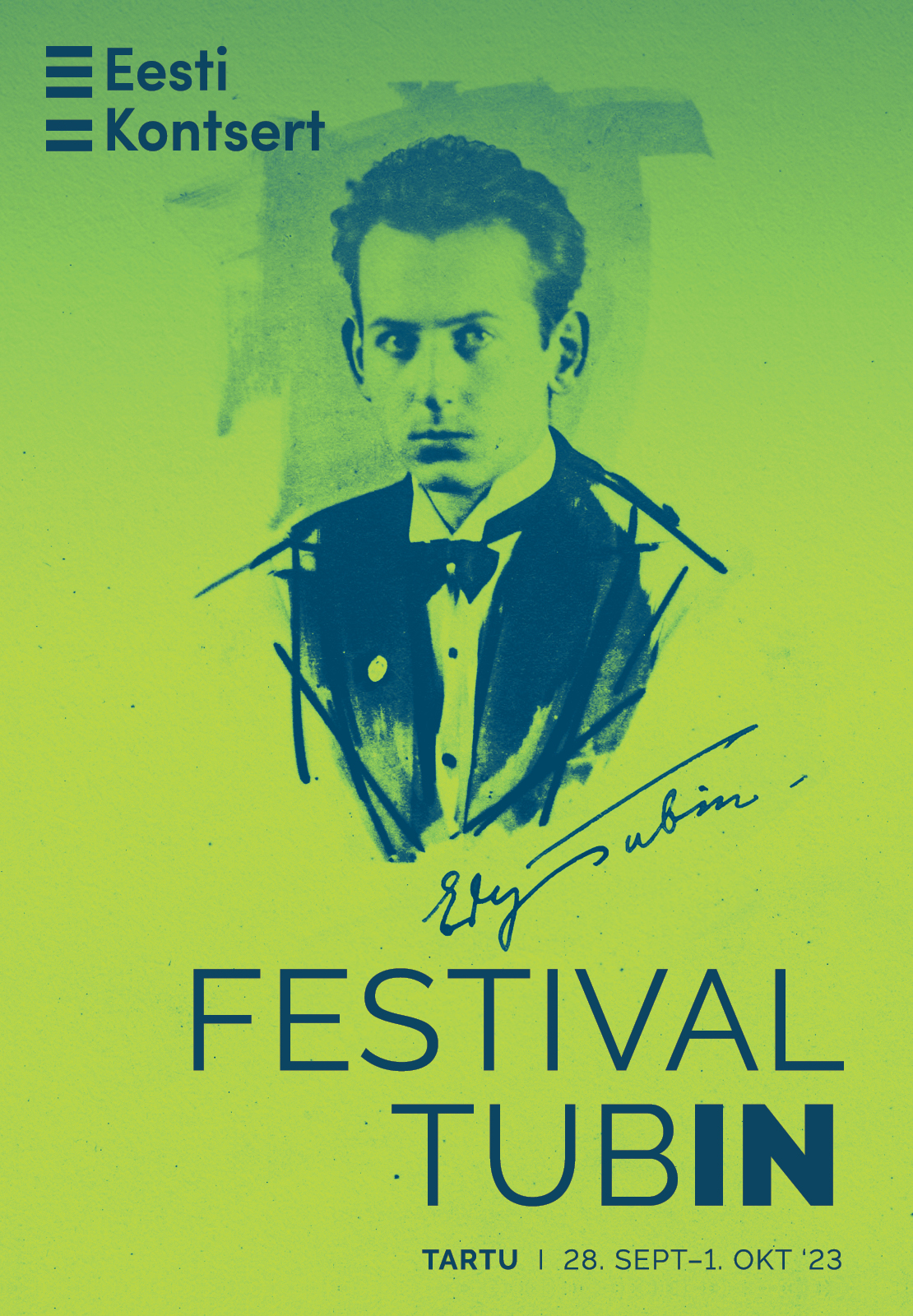28. september – 1. oktoober 2023
Artistic Director Mihhail Gerts
Festival TubIN 2023 steadfastly continues on its journey of introducing the symphonies of Eduard Tubin, and making sense of events and topics related to those symphonies.
This year’s festival focuses on Symphonies no 7 and no 8 by Eduard Tubin, and the main theme of the festival is consistency. The nulla dies sine linea principle (Latin for “not a day without writing”), which Tubin learned under the hand of Heino Eller, helped him to develop his creative works even during the most complicated moments of his life. One such moment being the attack by the foreign Estonian refugee communities which followed composers visit to Estonia in 1961. At that time Tubin also had to suffer slander by his compatriots in the new country, in addition to the feeling of “fatherlandlessness” which was described by the author Ristikivi and is familiar for any refugee. Tubin’s Symphony No 8 “Non Grata”, which will be performed in the festival’s opening concert, was written while under this crossfire. In the composer’s words, he dared to express his feelings, to laugh and cry in this piece. Now, many years later, it would be interesting to know why the refugee community could not or did not want to understand the reason for Tubin’s visit, which was ostensibly to attend the première of his “The Goblin” ballet and to support young composers here. The importance of the example which Tubin set for a generation of young Estonian composers is evident from this festival’s opening piece, Symphony no 1 by Arvo Pärt, which is dedicated to Heino Eller, teacher for both Pärt and Tubin.
Heino Eller also had teachers. One of them was Rudolf Tobias, music teacher at the Tartu Secondary School of Science from 1904, who created the school orchestra and the first string quartet in Estonia – in which the young student Eller played the violin. As a note of consistency, this year’s festival is dedicated to celebrating the one hundred and fiftieth anniversary of the birth of Rudolf Tobias.
To keep the continuity, the theme night “Journeys with Rudolf Tobias” is dedicated to Tobias’ 150th anniversary year. In the concert-panel “At the Gate of Freedom”, Joonas Hellerma and neuroscientist Jaan Aru discuss the challenges the human freedom is acing in the light of the development of artificial intelligence.
The final concert, “From Hand to Hand”, includes pieces in which the works of each composer form a notional link in the chain of predecessors and successors. By the time Tubin wrote his Symphony no 7, Tubin himself had become a master, composing the symphony for a classic orchestral composition. Max Bruch, another classic – as well as being a great admirer of the talent of Felix Mendelssohn, who was dubbed the Mozart of the nineteenth century – was one of the most important composers in the Berlin music scene when Rudolf Tobias lived there.
There are more differences and conflicts between those composers than there are similarities. Due to the consistency of creative work, however, there is a point at which a successor becomes a predecessor for the next generation.
Welcome to the TubIN 2023 festival!













